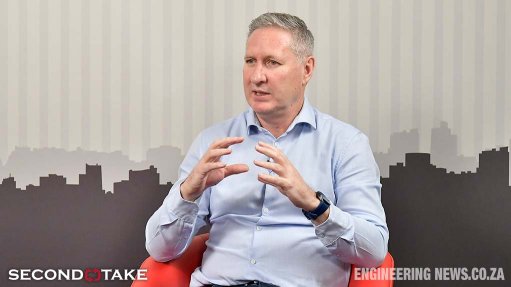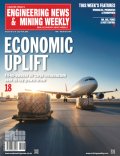GIB Investment Summit discusses the future of investing under Regulation 28
This article has been supplied.
An investment summit hosted by GIB Financial Services was packed with insights from a panel of leading investment professionals to discuss the revised Regulation 28 and opportunities it presents to the retirement fund sector, as well as their funds and views.
Exchange controls and Regulation 28 were recently amended to increase the retirement fund offshore investment limit to 45%. It was previously 30% with an additional 10% African allowance. Changes were also made to the caps on allocations for alternative investments such as private equity and hedge funds.
“Global investing is front of mind for most South African investors and key to this is understanding the appropriate offshore allocation, given continued market volatility and persistent global inflation. Regulation 28 represents a measured journey to the destination of greater investment freedom,” said Glenn Gamsy, CEO of GIB Financial Services.
The panel consisted of Wayne van Rensburg, Principal Officer of the Destiny Retirement Funds; Simon Fillmore, Chief Investment Officer of Independent Securities; Jean Pierre Verster, Chief Executive Officer of Protea Capital Management; and Bright Khumalo, analyst and Portfolio Manager at Vestact Asset Management. The Summit and panel discussion were moderated by television and radio presenter Bruce Whitfield.
Key topics for discussion were whether the South African investment industry had the capability to invest on the global stage, what future portfolios might look like and what is the appropriate offshore allocation, given continued market volatility and persistent global inflation. Few fund managers had yet taken up the increased capacity in the face of a weak rand and the JSE currently offering better value.
Protea Capital Management’s Verster described some of the other changes to Regulation 28 as: “A 15% cap on how much of a fund can be invested in a single company; an increase to 15% on the permitted allocation to private equity and a further 10% to hedge funds from a previous combined amount of 10%. There is also a complete prohibition on investment in crypto-assets both direct and indirect.”
Destiny Retirement Fund’s Van Rensburg, noted the context in which the changes occurred: “Regulation 28 now mirrors a number of changes in the world, primarily diminished listings and a growing demand for more infrastructure investment (both a South African and global trend) as well as more capital allocated to private equity and alternative investments such as hedge funds.”
Fillmore of Independent Securities felt the changes reflect the reality of investing: “Take our portfolio - we manage more money offshore now than we do locally. When we look at the top ten holdings of the big South African asset managers one sees a lot of commonality and consequently, similar returns. An investment world where fund managers can invest up to 45% offshore and take currency views, will facilitate significantly greater differentiation in portfolios and returns.”
Khumalo described his philosophy as “sitting more at the extremes of offshore investing” in terms of capital percentages invested offshore and felt the optimum percentage would be 65%. “I don’t agree with South Africa having any exchange controls at all as we’re one of the few countries in the world to still have them. In terms of alternative investments, the West averages a 50% allocation and we have only now increased it to 25%.”
The regulator would find it difficult to further increase the allocation of capital to alternative investments, especially hedge funds, when boards of trustees remained reluctant to use their full current allocation, claimed Verster. He felt this stemmed from misunderstandings about the risk nature of alternative asset classes. The regulator would first want to see a greater take up before extending the allocation closer to international norms.
Were exchange controls to be fully lifted and Regulation 28 rules removed to give investors complete freedom of choice, this would inevitably have a significant impact on both the currency value and JSE valuations as money would flow offshore in the short term. However, Khumalo noted the experience of the US where notwithstanding complete freedom of movement of capital, investors retained a strong home bias, and there would likely be a similar home bias in South Africa with investors sticking with the brands they know best.
“Offshore investing proficiency exists in South Africa as most asset management houses have spent considerable resources in developing international research capability,” said Khumalo, noting that the skill set was largely identical to domestic. Verster added that most of the larger JSE-listed stocks were themselves international companies albeit domiciled in South Africa. “More than 60% of JSE earnings on a look-through basis already originates offshore. Furthermore, international companies are required to disseminate company information to all stakeholders simultaneously, so there is no advantage in where a fund manager is located.”
The introduction of an allocation to infrastructure assets was regarded as a favourable step though requiring tighter definition. It is effectively a new asset class falling between equity and bonds, with a relatively fixed return. The regulation does not offer a clear definition of infrastructure as an asset class, but fortunately global best practice and guidance exists with infrastructure funds typically investing in assets like fibre optic cables, alternative energy and parts of the national grid - all of which are in big demand in South Africa.
Van Rensburg noted that in the case of roads, it would be toll roads, or if renewable energy there would need to be suitable offtake agreements. “It requires financiers to partner government to get an infrastructure programme approved. The money exists for it, but to unlock it there has to be a pipeline of projects delivering suitable returns for pension fund members.”
The impact of the 45% offshore allowance would in time change the character of top-ten investments of local fund managers. It was felt – as with international investment firms - the big tech companies such as Amazon and Apple would become more prominent, depending on the investment strategy of each fund, and other variables such as valuations.
Comments
Press Office
Announcements
What's On
Subscribe to improve your user experience...
Option 1 (equivalent of R125 a month):
Receive a weekly copy of Creamer Media's Engineering News & Mining Weekly magazine
(print copy for those in South Africa and e-magazine for those outside of South Africa)
Receive daily email newsletters
Access to full search results
Access archive of magazine back copies
Access to Projects in Progress
Access to ONE Research Report of your choice in PDF format
Option 2 (equivalent of R375 a month):
All benefits from Option 1
PLUS
Access to Creamer Media's Research Channel Africa for ALL Research Reports, in PDF format, on various industrial and mining sectors
including Electricity; Water; Energy Transition; Hydrogen; Roads, Rail and Ports; Coal; Gold; Platinum; Battery Metals; etc.
Already a subscriber?
Forgotten your password?
Receive weekly copy of Creamer Media's Engineering News & Mining Weekly magazine (print copy for those in South Africa and e-magazine for those outside of South Africa)
➕
Recieve daily email newsletters
➕
Access to full search results
➕
Access archive of magazine back copies
➕
Access to Projects in Progress
➕
Access to ONE Research Report of your choice in PDF format
RESEARCH CHANNEL AFRICA
R4500 (equivalent of R375 a month)
SUBSCRIBEAll benefits from Option 1
➕
Access to Creamer Media's Research Channel Africa for ALL Research Reports on various industrial and mining sectors, in PDF format, including on:
Electricity
➕
Water
➕
Energy Transition
➕
Hydrogen
➕
Roads, Rail and Ports
➕
Coal
➕
Gold
➕
Platinum
➕
Battery Metals
➕
etc.
Receive all benefits from Option 1 or Option 2 delivered to numerous people at your company
➕
Multiple User names and Passwords for simultaneous log-ins
➕
Intranet integration access to all in your organisation


















